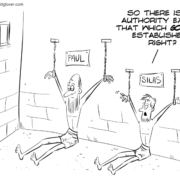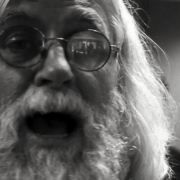Romans 13 and Civil Disobedience
Matthew Anslow | Thursday, 5 February 2015
This article was originally published by Ethos. It is a condensed version of more extensive article that has been published in Crucible.
For over a year I have been involved with the #LoveMakesAWay sit-ins and prayer vigils in the offices of prominent Government and Opposition MPs. These actions have been the responses of Christians from a variety of denominations to the cruel asylum seeker policies of the Australian government. They have been intentional acts of civil disobedience.
In response to our actions some Christians have expressed disagreement with our methods, often citing Romans 13:1–7 as rationale for doing so. A “plain reading” of this passage, which counsels readers to “submit to the governing authorities,” seems to yield a clear and straightforward command that implies the prohibition of civil disobedience.
What follows is a brief attempt to address the question of whether Romans 13 does in fact prohibit the possibility of faithful Christian nonviolent civil disobedience. Read more


